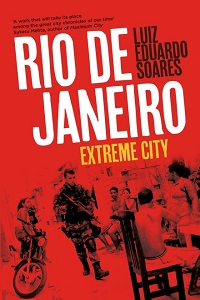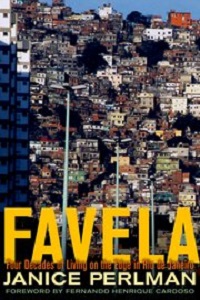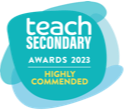How will these resources help you?
Urban Change is central to most GCSE and A Level Syllabuses, and the key to optimal student engagement is to apply theory to an inspiring case study. Rio de Janeiro is just that. A thriving megacity with a fascinating history of oppression and opportunity. The flamboyant wealth of the South Zone along Copacabana Beach and Guanabara Bay will be familiar to students following the 2014 World Cup and the 2016 Rio Olympics. Its unbalanced economic structure was less obvious. There is extreme functional division between the city's productive districts and its poor residential neighbourhoods. However, minorities are developing a voice. These resources will help you to contrast the opportunities available to rural migrants with the challenges that come with living in Rio’s Favelas and build a case study that students will be inspired to apply in exams. They contain both social research and anecdotal material to build into lessons. More able students will find these resources valuable to use by themselves.
Rio through the eyes of the people

Rio de Janeiro: Extreme City
by Luiz Eduardo Soares, published by Penguin, (2016), 9781846148026
This book is an excellent introduction to Rio’s opportunities and challenges. The author's work is particularly easy to read and so the book is a very accessible resource for teachers (and students) to read prior to teaching the topic. It consists of nine accounts of life in the city from a range of angles, including those involved in the underbelly of the city through crime, to those in the corridors of power. The author writes just before the 2016 Olympic Games, when budgets for healthcare, education and transport are shrinking to make way for the games, and this provides the narrative for opportunities and challenges in the city. He writes from his experience of the military dictatorship in the 1960s, and his life as an academic, activist and politician, and examines the lives of the winners and losers in the city. For students familiar with Rio through sporting events and tourism, this offers them a new perspective on the real life of the city’s residents.
Challenges for urban poor

Favela: Four Decades of Living on the Edge in Rio De Janeiro
by Janice Perlman, published by Oxford University Press, (2011), 9780199836833
This book is hailed as ‘one of the most important works in global urban studies in the last 30 years’. It is a sequel to the author’s previous book, ‘The Myth of Marginality’ (1976) which was an account of her time living in the favelas in the 1960s. Here, she revisits some of the residents, however, one of the favelas had been completely demolished. The challenges in Rio are central to this book, and the author highlights the key reasons for the continued disadvantage of the residents, with drug markets and corruption playing key roles. This is useful when teaching the topic of social challenges on the cities of newly emerging economies, and the barriers to the authorities in providing for the urban poor (common exam questions at GCSE). I use this book regularly, as it contains many photos, maps and social research that are perfect for students to refer to when substantiating their longer answers and evaluating the opportunities and challenges in the city. More able students would benefit from this book for independent research.
Opportunities for Rio’s residents

Rio: Beyond the Map
by José Junior, (2016)
This resource serves as virtual fieldwork for students to immerse themselves into the community. Most school texts were written pre-Olympics, so the articles written post-Olympics provide more up-to-date perspectives. I use this resource at GCSE, with students engaging themselves in researching the city visually, using 360-degree videos. José Junior, a director of Afroreggae, maps the unmapped favelas using a Google Street View camera. The task requires a research frame by way of a worksheet. After studying the favelas for a few lessons, students tend to develop a negative picture of the settlements. This aims to show the community in a positive light as students enter and see for themselves, as they navigate around and meet the people. In effect, virtual fieldwork.
Further materials
Inside Rio’s Favelas, the city’s impoverished, neglected neighborhoods by Johnny Harris, published by VOX, (2016)
Read this article
After the Flame by Wayne Drehs and Mariana Lajolo, published by ESPN, (2017)
Read this article
Five years on: Revisiting Rio 2016 Olympics’ unkept promises by Chris Goldenbaum and Isabella Galante, published by Aljazeera, (2021)
Read this article
David Newell is Head of Geography at Millais School in Horsham, West Sussex. He has held the GA’s Secondary Geography Quality Mark since 2015, and has worked as a Specialist Leader in Education, advising schools on improving their Geography provision.
Text © David Newell, 2022.
Text © David Newell, 2022.



